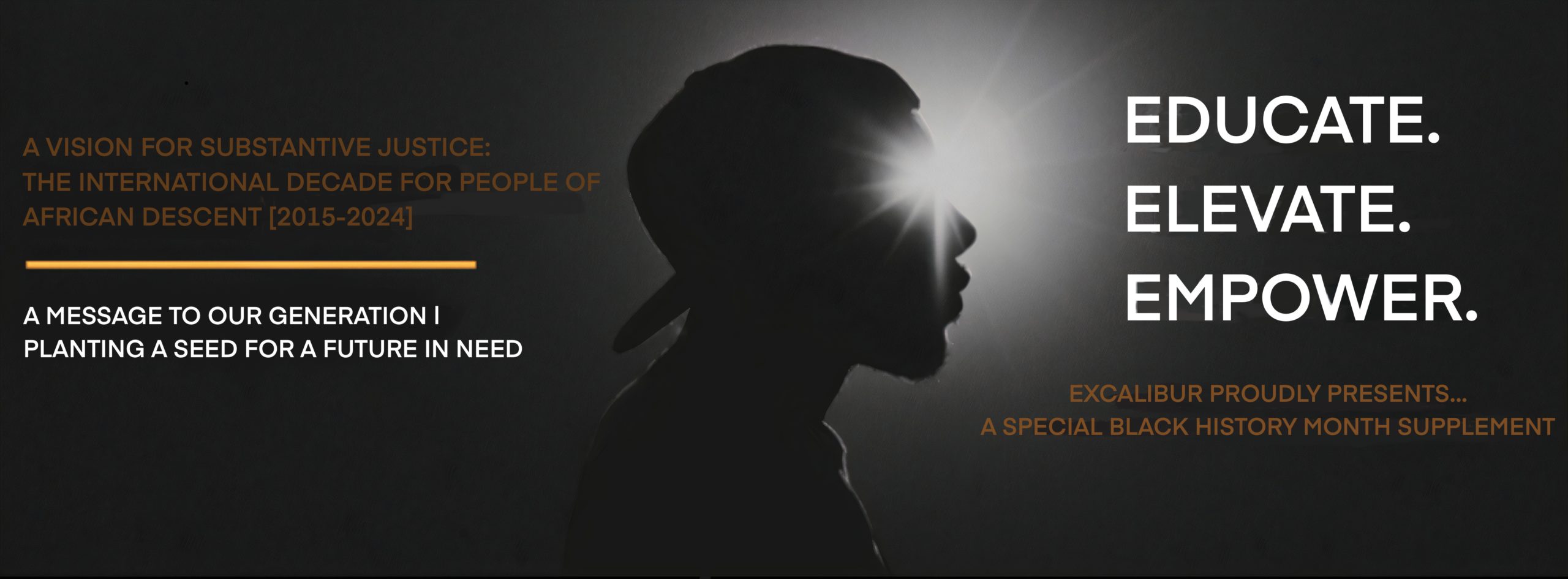Recognition. Justice. Development.
“The Decade is a unique platform that emphasises the important contribution made by people of African descent to every society, and promotes concrete measures to stop discrimination and promote their full inclusion.”
Michelle Bachelet, UN High Commissioner for Human Rights
Human Rights Council, 43rd session, 13 March 2020
As Nina Simone once said: “To be young, gifted and Black!” In honouring Black History Month, such powerful words evoke a spirit of unity, diversity, and resiliency for members of the African Diaspora at home and abroad.
It is a resounding heart cry for recognition, justice, and development to be served as Canadians of African descent reaffirm a commitment to rebuild their communities for greater prosperity. When discussing substantive justice, it speaks to understanding our unique challenges within a broader human rights framework for effective change. There are winds of social, political, cultural, and economic change taking place across the country and it is a call to action to improve the quality of life for every member of the African-Canadian community.
The unique challenges of the African-Canadian community come with many opportunities depending on your perspective. For such a reason, it is a duty and responsibility that people are educated on the International Decade for People of African Descent (IDPAD) and the political potency of this international policy to reclaim our human rights with a spirit of dignity.
To give a quick background, the IDPAD was designed with the following key objectives in mind:
- Official recognition of the historical/contemporary contributions of people of African descent worldwide in alignment with the Sustainable Development Goals (SDG) spearheaded by the United Nations (UN).
- The eradication of racism, racial discrimination, xenophobia, and related intolerances by leveraging international human rights law and the UN human rights system.
- Promote, protect, and defend the human rights (e.g.: civil, political, economic, social, and cultural rights) of people of African descent with a commitment to ensure that substantive justice is served.
To bring it back home, this policy can be connected to the relatively unknown United Nations Working Group of Experts on People of African Descent on its mission to Canada. This special UN delegation was invited by the Government of Canada to examine the human rights condition of the African-Canadian community. Here is a key finding from this important mission: “The contemporary form of racism replicates the historical conditions and effects of spatial segregation, economic disadvantage, and social exclusion.”
The human rights situation for people of African Descent speaks to the practice of anti-Black racism and the wider question of government responsibility in these key socioeconomic indicators: education, economics, health, child welfare, employment, housing, and criminal justice.
Given these unique challenges, there has been progression with respect to the government of Canada officially recognizing the IDPAD. As a signatory nation to this International Human Rights Convention, the Canadian government responded and implemented specific policies at all three levels of government based on concrete recommendations from the African-Canadian community.
“Canada is doing a lot more than the vast majority of states, however, the key issue is the fact that IDPAD is under discussed and we have the opportunity to rally African global populations if we knew and had the awareness.”
As a human rights lawyer, community educator, and manager of the City of Toronto’s Confronting Anti-Black Racism (CABR) Unit, Anthony Morgan represents one of many pioneering voices who made a powerful case for an African-Canadian human rights agenda at the United Nations’ launch of the International Decade for People of African Descent.
Anthony stressed the importance of “building a political base, communicating amongst ourselves, and learning from other communities” to ensure proper leveraging power is wielded with respect to the government.
Living in a post-George Floyd world brings perspective on the importance of rallying the African Diaspora to neutralize racism and white supremacy once and for all. Furthermore, the time has come for IDPAD to be at the front and centre of our political engagement with government leaders.
Moreover, Morgan also indicated the necessity of cultivating a “deeper relationship of solidarity in a spirit of reconciliation with Indigenous communities,” and facilitating an exchange of best practices to advance the cause for substantive justice to be served.
“Canada is doing a lot more than the vast majority of states, however, the key issue is the fact that IDPAD is under discussed and we have the opportunity to rally African global populations if we knew and had the awareness,” Morgan says.
I speak from a place of intellectual humility when I say “we have more power than we give ourselves credit for!” The African-Canadian community possesses a unique diversity as we come from the African continent, the Caribbean, Europe, the United States, and Latin America.
I would boldly make the following statement: we are the most strategically positioned African Diaspora that can demonstrate the example of what social, political, cultural, and economic unity can look like!
In many respects, IDPAD is a call for redemption, reconciliation, and restoration for the African Diaspora. It is a testament to the strategic political influence of African-Canadian changemakers, gamechangers, and thought leaders guided by substantive justice to ensure that our human rights are promoted, protected, and defended.
The powerful words of Carter G. Woodson, (aka the father of Black History Month) whose famous work, “The Miseducation of the Negro,” are brought to life. He has informed generations of people of African descent by saying: “Those who have no record of what their forebears have accomplished lose the inspiration, which comes from the teaching of biography and history.” Let us honor our pioneers by reaching back into the blueprints they left behind and build on their respective legacies for community prosperity!
Final words: Remember the past. Honor the present. Build for the future.


